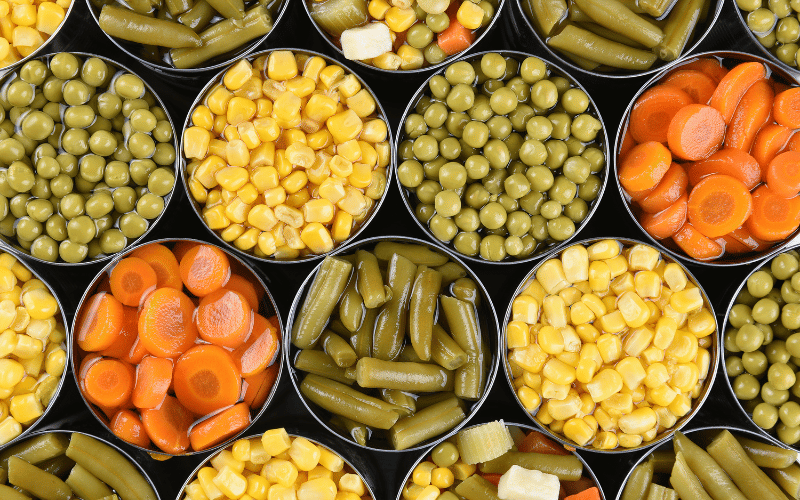Food 10: Canned Vegetables with Added Sugar or Salt

Canned vegetables might seem like a convenient and healthy option, but many brands add sugar or salt during the canning process. This addition can be problematic for individuals with prediabetes. Excess sugar, even in the form of added sugars in vegetables, can lead to spikes in blood sugar levels. Similarly, high salt content can contribute to hypertension, a common comorbidity in individuals with diabetes.
The added sugars in canned vegetables can negate some of the health benefits of the vegetables themselves. While vegetables are a key part of a balanced diet due to their vitamins, minerals, and fiber, the added sugars can increase the carbohydrate load, affecting blood sugar control. High sodium levels can also pose health risks, particularly for heart health, which is a concern for those with prediabetes and an increased risk of cardiovascular disease.
It’s important to become adept at reading labels when selecting canned vegetables. Look for options that say “no added sugar” or “low sodium.” Alternatively, opting for “unsalted” or “without added salt” varieties can make a significant difference in sodium intake.
Whenever possible, choose fresh or frozen vegetables over canned varieties. Fresh vegetables retain more of their nutritional value and don’t have the added sugars or sodium found in many canned options. Frozen vegetables are a convenient and healthy alternative, as they are often flash-frozen at peak ripeness, preserving their nutrients without the need for added preservatives.
Incorporating fresh or frozen vegetables into your diet can have several long-term health benefits for individuals with prediabetes. These options provide the necessary nutrients and fiber to support blood sugar management and overall health, without the added sugars and sodium found in some canned products. Making this dietary switch is a positive step towards managing prediabetes and improving overall wellness. (10)